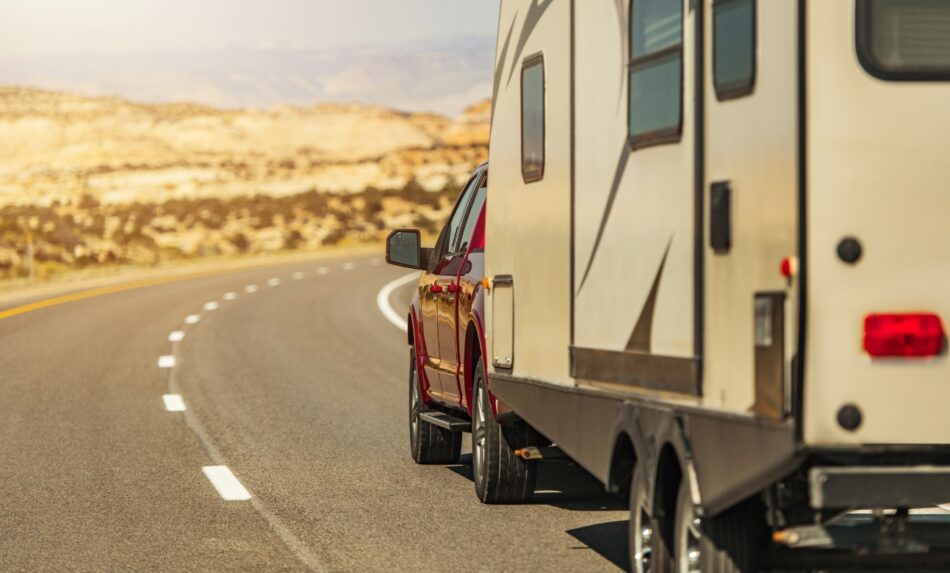Canadian summers have a special magic — especially if you are spending your weekends and holidays out camping.
There are lots of options when it comes to insuring your recreational vehicle (RV), but it’s important to understand the limitations of your coverage. In this article, we will explore what is covered under your auto and home policies and the importance of RV insurance so that you can enjoy the great outdoors worry-free.
Why having separate RV coverage is important
In some cases, you can add your RV or trailer to your home insurance policy, but not all home insurance companies will let you. Make sure to evaluate if the coverage meets your needs and keep in mind that a claim on your trailer would be a claim on your home insurance policy.
It’s also important to note that if you get into an accident while towing your trailer, the damage to your trailer won’t be covered under your auto insurance.
Understand what your auto policy covers
If you are towing a trailer, your third-party liability auto coverage typically extends to your trailer when transporting it to your campsite, depending on the province. Third-party liability covers damages and injuries that you cause to others and their property in an accident, NOT your property. Once your trailer is unhitched, your auto liability ends.
Even if you’re not overly concerned about claims on the trailer itself, you can inquire about an actual cash value policy. It would provide a lower premium, while still offering the premises protection that can cover you for the many hazards that may occur whether you’re in a licensed campground or out exploring the backcountry.
For instance, if someone falls in your campsite plot and breaks their leg, your premises liability insurance would help cover legal costs in case of a lawsuit.
If you own a motorhome, you must carry a minimum amount of third-party liability, accident benefits and direct compensation for property damage insurance, like any other vehicle on the road. Because a motorhome also serves as a dwelling, you will also need property coverage the includes personal and premises liability for the non-motorized parts of the RV.
Hazards that can lead to claims
Ensuring that you are properly storing tools, firewood, gear and food are essential for avoiding claims while camping.
Improper food storage can attract wildlife like bears, but it can also draw smaller and sometimes more destructive animals like mice and rodents. Damage from rodents is typically not covered.
Make sure that portable gazebos, tents and play structures are strapped down and properly secured so that they can’t fly away and become liabilities in a storm.
Remember to check for any local fire restrictions and ensure that you are fully extinguishing all fires before going to bed or leaving your campsite unattended.
Don’t forget to keep your pets leashed and in a secure area — especially if they are known to be reactive.
Double check your special limits
If you have expensive gear that you bring with you, such as high-end fishing rods, e-bikes or electronics — you should review your policy’s special limits. Special limits will pay for loss or damage that exceeds your deductible amounts, but only to the maximum limits that are stated in your policy.
For example, if you have three e-bikes that are stolen from a campsite — you might not receive the actual amount needed to replace them if the claim exceeds your special limits.
Taking your RV out of the country
If you plan to take your RV outside of Canada, our policies do offer coverage for travel in the US. However, there may be a limit to how long you can be outside of the country every year. Be sure to double check your policy limits before heading out for the season.
While you’re away, don’t forget to have someone check on your home every two to three days! Otherwise, you may not be covered if something happens.
Also, remember to review and purchase travel insurance before you go!
Questions?
If you have any questions or would like to review your policy, an Acera Insurance advisor is happy to help. They can help you with a quote for your RV and ensure you get the best coverage available so you can enjoy rest, relaxation and recreation time with family and friends.
Information and services provided by Acera Insurance, Acera Benefits and any other tradename and/or subsidiary or affiliate of Acera Insurance Services Ltd. (“Acera”), should not be considered legal, tax, or financial advice. While we strive to provide accurate and up-to-date information, we recommend consulting a qualified financial planner, lawyer, accountant, tax advisor or other professional for advice specific to your situation. Tax, employment, pension, disability and investment laws and regulations vary by jurisdiction and are subject to change. Acera is not responsible for any decisions made based on the information provided.

